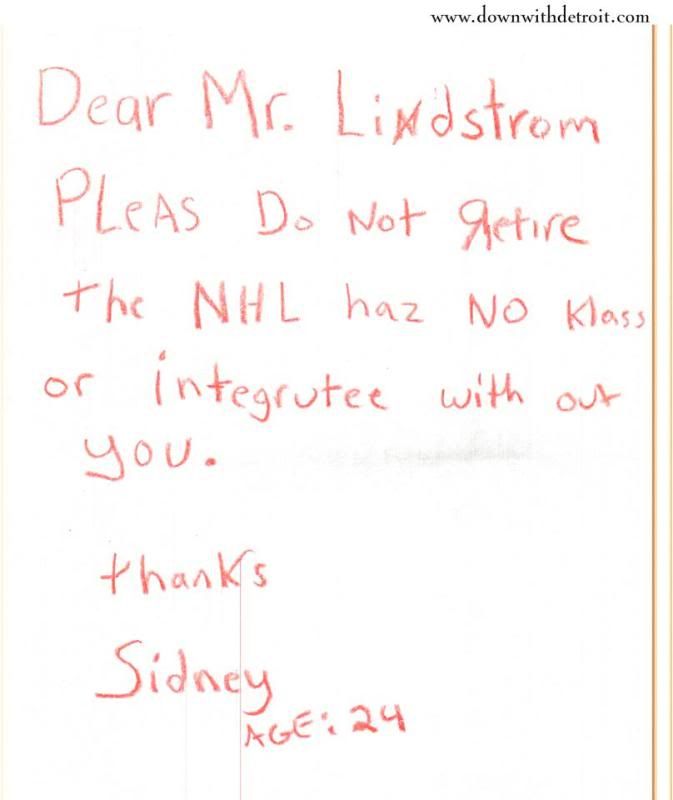Originally posted by WingsFan
View Post
At the end of the day Packy, it's a business and cost certainty is a must. An equitable salary cap of sorts tied to League revenues is a good thing in this regard, provided the numbers are truthful. The artificial parity perception is in large part respsonible and needs to be addressed, Danny Tackuzk's recent comments are spot-on.
Changing the perception of a .500 record
Down the stretch of the regular season, NHL teams continue to push and analyze their chances of getting into the playoffs. There is a lot of scoreboard watching and “what-if” scenerios to ponder. Hopefully in the end, the better teams will move on.
During the lockout, the NHL’s decision makers added the shootout and changed the points system. They felt this would add value to fan entertainment, while creating the desired parity within the league to go along with the newly-introduced salary cap system.
Personally, I am not a fan of this setup.
For one, it means regular season games differ in value. Some are worth two points, while others are worth three. That means a team that dominates a game and wins 4-0 gets the same reward as a team that wins in a shootout or overtime.
More importantly, the team that dominated in its victory only gains one point in the standings over the team that lost in extra time.
So what does that mean?
• Over the past three seasons the average number of points awarded to each team has been:
2010-11 = 91.9 points
2009-10 = 92 points
2008-09 = 91.4 points
This means the three-year average is 91.77 (92), roughly 10 points more than standard .500 mark.
• The average “win percentage” has increased to .560 from the original .500 (or 82 points during the regular season). However, this isn’t winning percentage at all, but points percentage and there is a tendency to confuse the two. Fans and analysts need to shift their notions of “500” when looking at records.
SUMMARY
GMs and coaches should start to avoid the cliches of “we were .500 because we got seven of a possible 14 points” and hide behind this falsehood to cover their teams’ lackluster play.
I would love to see the NHL adopt the three-point system spelled out below so that every game is worth the same in the standings:
• Regulation win: three points
• OT/SO win: two points
• OT/SO loss: one point
• Regulation loss: zero points
This point system would reward teams for their strong play and create greater distance in the standings between them and the weaker clubs, resulting in a more accurate reflection of where teams lie (though eliminating the perception of league-wide parity).
The three-point system would also give teams more control over their own fate down the stretch and perhaps create more sellers at the NHL trade deadline.
Daniel Tkaczuk was Calgary's first round pick in 1997 (sixth overall) and has been playing professionally in North America and Europe for the past 12 seasons. He is currently president of iHockeyTrainer.com, an online hockey school for skill development.


Comment